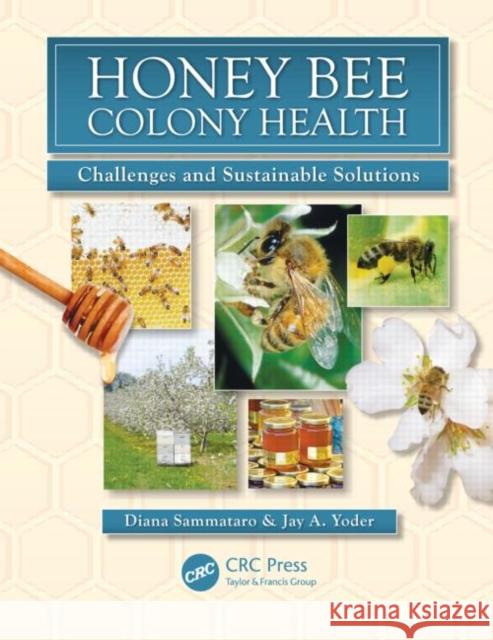Honey Bee Colony Health : Challenges and Sustainable Solutions » książka
Honey Bee Colony Health : Challenges and Sustainable Solutions
ISBN-13: 9781439879405 / Angielski / Twarda / 2011 / 320 str.
Modern commercial beekeeping has changed from primarily honey production to crop pollination. With this change has come extraordinary stress colonies are moved multiple times a year, increasing their exposure to diseases, parasites, and hive pests. Antibiotics and acaricides are being applied more frequently, resulting in resistance and comb contamination. The future use of bee colonies as mobile pollinator populations requires modern management methods with fresh perspectives on nutrition, breeding practices, and the role of microbes in sustaining colony health.
Honey Bee Colony Health: Challenges and Sustainable Solutions summarizes the current status of honey bees and possible reasons for their decline. This beautifully illustrated volume provides a foundation for management methods that maintain colony health. Integrating discussions of Colony Collapse Disorder, the chapters range from information on the new microsporidian Nosema ceranae pathogens, the current status of the parasitic bee mites, updates on bee viruses, and the effects of these problems on our important bee pollinators. This indispensable text also presents methods for diagnosing diseases and updated information on the current status of bee breeding.
Honey bee colonies are in greater demand and are renting for higher fees than ever before. Finding ways to prevent outbreaks of disease and to control parasites is essential for reducing colony losses. The accumulation of knowledge from a range of bee scientists, Honey Bee Colony Health: Challenges and Sustainable Solutions aims to inspire future generations of researchers, beekeepers, and students to continue to study bees and keep them healthy and pollinating.











